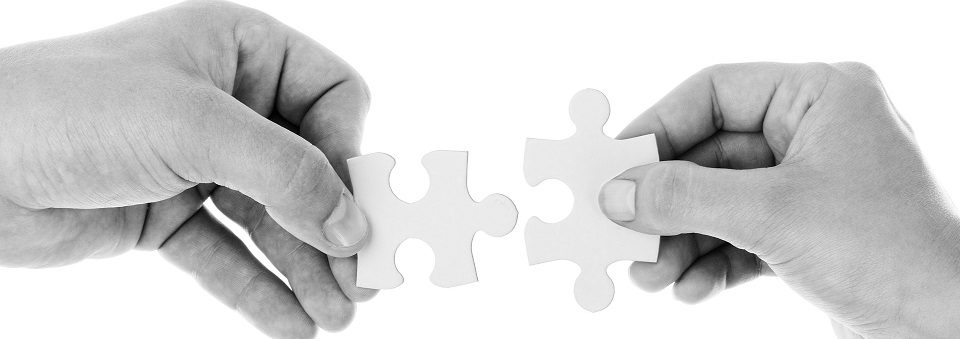Popular Posts
Want to become a patient?
Upcoming Events
Most Recent Articles
Scrupulosity Exposure Help?
So this post is a bit different than my regular posts… Rather than discussing a specific aspect about OCD or anxiety, this post is a request for your assistance in completing an exposure. Here’s the background… I have a patient with scrupulosity (religious OCD) who is working to resist his prayer rituals. Oftentimes, his OCD will lead him to pray many, many times throughout the day in response to various triggers he encounters. One of his primary treatment goals is to be able to reduce unhealthy, OCD-based prayers throughout the day. Scrupulosity treatment can be challenging, but he’s doing a great job. At this stage, we are trying to ratchet things up a notch by having him purposefully expose himself to situations where people request prayers from him directly. Over the last week or so, I’ve been asking people who come to the office to write down “prayer requests” for him. After reviewing these requests, he is to actively resist praying on their behalf. The exposure goal is for him to know that there is actually a person out there with a real prayer need who is requesting help — BUT… to be able to actively resist the urge to pray and then effectively manage any resulting anxiety, guilt, or distress. In other words,...
Read MoreOCD Scriptathon 2017: A Group Scripting Experience
What: OCD Scriptathon 2017, A Group Scripting Experience Where: Our office! Located at 11380 Prosperity Farms Road, Ste 209A, Palm Beach Gardens, Florida 33410 When: Tuesday, April 11, 2017 from 8:00 PM – Until It Ends If you’ve ever practiced imaginal exposure, you’ve learned that having freaky thoughts on purpose can actually help you fight your OCD. Please join us for Scriptathon 2017, a group scripting experience. This is an opportunity to put your worst fears and most horrific thoughts on display for the world to see. Feel free to incorporate death, blasphemy, sexual thoughts, or any other distressing theme(s) that your OCD uses against you. This exposure experience is not for the faint of heart, and attendees should expect to hear things that might be disturbing or distressing. Also, please note that given the sensitive nature of the topics discussed, this event is for adults-only. Goals: 1) To read scary, horrible, or distressing scripts out loud for the sake of habituating to these themes. 2) To deal with uncertainty about what others might think about you or your scripts. 3) To help support others in their own scripting exposures. All attendees should bring 3 scripts to the workshop. Click here for a blog post about scripting that includes some examples. Your scripts may focus on the same theme or address...
Read MoreOCD and Uncertainty
These are difficult times. Lately, it seems, each week brings with it something truly horrifying. A shooting or an act of terrorism, a hate crime committed against an individual, a disease that affects the unborn. You can hardly turn on the news without hearing about something that incites fear. Yet… We get up every day and go about our normal lives. We get in the car, we drive to work, we come home to our families. We live as if we are untouchable. Technically, we’re not, but we’re often happiest when we live as if we are. Some of us do this easily. The awareness of our own fragility doesn’t linger. Others of us are tortured by possibilities. What if this happens to me? What if this happens to someone I love? OCD brings with it superhuman attention to possibilities. OCD wants us to think that the only acceptable world is a perfectly safe world. Unfortunately, the world we live in can sometimes be dangerous. Although we may not often think about it, the possibility of danger is omnipresent; it’s all around us in nearly every moment of every day. What if I get in a car wreck on my way to work…? What if I fall down the stairs and break my neck…?...
Read MoreROCD
Although ROCD is often characterized by intrusive worries about your relationship, relationship OCD treatment often specifically targets the compulsions and avoidance behaviors related to ROCD (rather than the obsessions themselves). This is because ROCD treatment is based on the premise that compulsions and avoidance behaviors are what strengthen and maintain the condition. In the absence of rituals and avoidance, relationship OCD symptoms tend to diminish and weaken over time. This general principle is true for all types of OCD, not just ROCD. As a quick refresher, this multi-part series of posts on rOCD (aka “relationship OCD”) discusses obsessive thoughts that are common in rOCD, ROCD intrusive impulses and images, ROCD compulsions and avoidance behaviors [THIS PART!], and ROCD in non-romantic relationships [FORTHCOMING!]. Let’s get to it. What are common ROCD compulsions? ROCD (Relationship OCD) & Compulsions/Avoidance Behaviors Compulsions are the behavioral and/or mental strategies that individuals with ROCD use to reduce the distress brought on by their obsessions. Avoidance behaviors are also common to relationship OCD and are frequently used to avoid thinking about relationship-related doubts. Compulsions About Being with the “Right Person” Confessing doubts to your partner. Getting excessive reassurance from your partner. Seeking excessive advice from other people about how to proceed in your relationship. Getting reassurance from others that you’re in...
Read MoreOCD Treatment: Back to Basics
In previous posts, I have discussed various aspects of the “OCD Cycle,” but it never hurts to have a quick refresher. After all, understanding how OCD works can help you see through its lies and help mobilize you to stand up and challenge it. What is OCD, and how does OCD treatment work? OCD has two mains parts: obsessions and compulsions. We’ll talk about the obsessions first. Obsessions are unwanted thoughts, impulses, or images that intrude into your awareness, and cause significant anxiety or distress. Thoughts include such examples as, “What if I get sick?”, “What if I secretly want to harm my loved ones?“, “What if I just got sexually aroused by that child?“, and “What if I forgot to lock my front door and someone breaks in?“. Impulses are experienced as urges to commit actions that you wouldn’t want to commit. Some examples of unwanted impulses include the urge to blurt out offensive or inappropriate statements, grab a policeman’s gun and shoot someone, or do something sexually inappropriate in public. Images often consist of violent or disturbing mental imagery. You might be plagued by mental movies of extreme violence (e.g, seeing images of people getting killed or mutilated) or inappropriate or unwanted sexual contact (e.g., seeing yourself having sex with someone who...
Read MoreRelationship OCD (rOCD) – Unwanted Impulses & Images
This multi-part series of posts will focus primarily on rOCD, also known as “relationship OCD.” Part 1 focused on obsessive thoughts that are common in rOCD. This part discusses other relationship OCD obsessions, including intrusive impulses and images. Part 3 will review common compulsions and avoidance behaviors that are typical in rOCD (relationship OCD). Part 4 will discuss “Relationship-Focused OCD” more broadly in the context of other types of relationships, including friendships, parent-child relationships, and professional relationships. As I mentioned in my previous post on rOCD, many people with “relationship OCD” experience recurrent doubts about whether or not they are with the “right” person. Many also infer that if they have doubts about their current relationship, they might secretly want to cheat (or will cheat). They may fear that they will be unfaithful, even if they’re committed to their partner and have no specific desire to cheat. They may believe that unless they can feel 100% certain that they’d never cheat on their partner, they are in the “wrong” relationship. What Intrusive Impulses/Images Occur in Relationship OCD (ROCD)? In my previous post, I discussed rOCD obsessions characterized by unwanted thoughts. However, some particularly confusing rOCD obsessions include intrusive impulses or images. These obsessions overlap extensively with the obsessions experienced by those with hOCD (which...
Read MoreROCD – Relationship OCD
In a previous post on mental checking, I talked briefly about ROCD (Relationship OCD), a form of OCD that involves pervasive doubt and uncertainty about interpersonal relationships. This multi-part series of posts will focus primarily on ROCD in the context of romantic relationships. However, it will also discuss “Relationship-Focused OCD” more broadly in the context of other types of relationships, including friendships, parent-child relationships, and professional relationships. Relationship OCD (ROCD) in Romantic Relationships Many individuals with ROCD have symptoms that are most evident in their romantic relationships. They often experience significant doubt and distress about their chosen partners and may have a history of repeatedly breaking up or ending relationships due to recurrent doubts. ROCD sufferers may worry that they’re with the wrong person, that they don’t feel as emotionally connected to their partner as they should, or that their partner has unacceptable flaws. Other individuals may worry that their relationship feels asymmetrical (i.e., that their boyfriend, girlfriend, or spouse is more in love with them than vice versa). Some individuals with relationship OCD have generalized fears about committing to one person, such as being afraid of “missing out” or not “being on the right path” with “the right person.” Others have more specific worries, such as the fear of hurting their partner’s feelings...
Read MoreDriving Fears & Driving Avoidance in Teens & Young Drivers
Reader Question: My daughter just turned 15, and no matter what I say, I can’t seem to convince her to practice her driving. It’s strange, because in the past, all she could do is talk about how excited she was to finally get her permit. I truly thought that she’d be practicing constantly once she was legally able to. Have you seen this before? Could her driving avoidance possibly be related to her OCD? Sincerely, Stressed-Out Parent Answer: Maybe, maybe not. Driving Fears May Be Normal… Driving-related anxiety is a completely normal phenomenon. For many people, learning to drive is the first time that they are individually responsible for handling a situation that could potentially be life-threatening. Although car accidents are (hopefully) rare for most individuals, accidents can be harmful (or deadly) when they do occur. Being in charge of a (potentially) deadly “weapon” brings with it an immense sense of responsibility. This can give rise to driving fears. For that reason, even the most non-anxious person may initially balk at driving. Nevertheless, for the majority of individuals, driving fears lessen with practice, and ultimately the person develops a sense of mastery over their driving. The act of driving becomes associated with pleasure and independence rather than with fear. …But Driving Fears May Also...
Read MoreHit-and-Run OCD vs. Other Driving Fears
What is hit-and-run OCD? Hit-and-run OCD (sometimes called MVA-OCD) is a subtype of obsessive-compulsive disorder that involves persistent and recurrent worries that you’ve hit someone while driving. While most people with hit-and-run OCD worry, “What if I accidentally hit a pedestrian?”, some worry about unintentionally causing car accidents, bike accidents, or property damage. Hit-and-run OCD is frequently misdiagnosed as panic disorder given that many people with panic disorder (with agoraphobia) also report a fear of driving. However, hit-and-run OCD and panic disorder are distinct conditions that may often be differentiated on the basis of their core fears. Driving Fears Related to Panic Disorder (with Agoraphobia) For someone who has panic disorder with agoraphobia, driving fears might arise because: Driving may have been associated with panic attacks in the past. Some people with panic disorder have a history of having had panic attacks while on the road and they’re fearful of this happening again. If you’re in the car and have a panic attack, escape isn’t easy. You may be fearful of getting trapped in your car while your anxiety escalates. Some people with panic also fear the potential for embarrassment if they panic in public. Panic disorder with agoraphobia is also associated with the fear of being vulnerable and helpless to anxiety or panic....
Read MoreOCD & Pets: Sexual Thoughts & Scrupulosity
Obsessions focusing on pets and animals incorporate all the common themes: contamination, checking, harm, scrupulosity, and sex. In this 3-part blog series, I’ll discuss some of the common ways obsessions may target our lovable, snuggable friends. Part 1 focused on harm obsessions, including the fear of accidental and intentional harm, and Part 2 covered contamination obsessions. This final part, Part 3, will address sexual obsessions and scrupulosity, as they pertain to pets. Our animals are members of our family. We treat them as our own. It’s not surprising, then, that OCD extends unwanted thoughts to our furry, fluffy companions. OCD loves to attach taboo thoughts to things we love, and our pets are no exception. Just as many parents struggle with obsessions that target their children (e.g., What if I secretly want to harm my child?; What if I secretly am sexually attracted to my child?), so too, do pet owners have obsessions that may involve taboo thoughts about their pets. Some of the most distressing and confusing pet obsessions focus on sexual themes, such as the fear of being sexually attracted to your pet. These obsessions may come out of the blue or may be triggered when one notices physical sensations of “sexual arousal” occurring in the presence of a pet. A gentleman...
Read MorePets & OCD: Contamination
Obsessions focusing on pets and animals incorporate all the common themes: contamination, checking, harm, scrupulosity, and sex. In this 3-part blog series, I discuss some of the common ways OCD obsessions may target our lovable, snuggable friends. This article, Part 2, will focus on contamination obsession associated with pets and animals. Part 1 covered harm and violent obsessions related to pets. Part 3 will address sexual obsessions and scrupulosity, as they pertain to pets and animals. Most everybody loves that shower fresh feeling, right? Not only does it feel good, but it’s probably good for us too. Throughout history, cleanliness and good hygiene practices have been instrumental to reducing our vulnerability to germs, disease, and illness. For survival’s sake, to a certain extent, we’re probably biologically-programmed to prefer clean, hygienic environments, over dirty, disgusting ones. Yet, at the same time, our human weakness for all things cute and cuddly leads many of us to choose to co-habitate with wild — or rather, domesticated — animals. This choice brings with it all sorts of opportunities for OCD to stir up contamination worries. Dogs and cats walk around barefoot outside or in litter boxes, and they tend not to wash their paws or bottoms very often (and when they do, it’s only with our assistance). Moreover,...
Read MoreOCD About Pets and Animals: Harm
Obsessions focusing on pets and animals incorporate all the common themes: contamination, checking, harm, scrupulosity, and sex. In this 3-part blog series, I discuss some of the common ways obsessions may target our lovable, snuggable friends. This article, Part 1, will focus on harm obsessions; Part 2 will cover contamination obsessions; and Part 3 will address sexual obsessions and scrupulosity, as they pertain to pets and animals. Pets. You gotta love ‘em. They’re so cute. They’re so cuddly. They always get excited when they see you. So why does OCD hate them so much anyway? Probably because we love them. Just as OCD tends to torment parents who love their children, OCD also loves to torment pet owners who love their pets. Get ready to brace yourself for all sorts of violent and horrific thoughts about pets and animals. It doesn’t matter what type of pet you have. Dogs, cats, birds, ferrets, bunnies, snakes, flying squirrels, chinchillas, mice, rats, guinea pigs, gerbils, potbellied pigs, fish, horses, cows, chickens, frogs, turtles, lizards, YOU NAME IT! The list goes on and on. Obsessions about pets and other animals can occur across all species. Let’s begin by identifying some examples of pet- and animal-focused OCD harm obsessions: OCD and Pets – Fear of Accidental Harm These OCD...
Read MoreAnger and OCD – Getting Mad…
“I hate having OCD! Why can’t these thoughts just stop?!?! How can I be the person I was before?!?!” Many people with OCD are extremely familiar with the anxiety-related aspects of the disorder. OCD is an anxiety disorder after all, so it’s not terribly surprising that anxiety is often core to its experience. But anxiety is certainly not the only emotion that shows up in OCD. I’ve discussed briefly how some people with OCD have symptoms of guilt, shame, disgust, and depression, and how treatment may sometimes need to be modified when these emotions are primary aspects of the disorder. Today, though, I’d like to comment briefly on anger and OCD, which I don’t think I’ve mentioned explicitly in previous posts. Anger can be a powerful force in many people’s OCD. What’s the relationship between anger and OCD? Actually, the relationship between OCD and anger is complex, in that it’s mediated by obsessions, compulsions, or even reactions to developing the disorder. Anger and OCD: Anger as a Trigger for Obsessions Anger is sometimes entwined with anxiety and contributes directly to some types of Pure-O OCD. For example, anger can be a trigger for some people who have harm OCD (e.g., What if getting mad means that I’m capable of harming my family members?). Individuals...
Read MoreERP Tip of the Day #2
It’s ERP tip time. This series of posts focuses on tips to enhance the effectiveness of your exposure and response prevention (ERP). If you’re interested in more ERP tips, click the following link for all the posts in this series. Exposure and Response Prevention (ERP) Tips for OCD Without further ado, here’s another ERP tip to consider when designing your next exposure. ERP Tip #2 When completing your next exposure, avoid rules that dictate what you’re allowed to think during the exposure. If you try to complete an exposure without having a certain bad thought, chances are that you’re setting yourself up to think that very thought. Instead, design your exposure around having that very same unwanted thought. I love it when people with OCD do exposure, but I don’t love it when they have a long list of impossible preconditions that dictate the form of their OCD exposure. The most glaring example of this is when people dictate the thoughts that they should have during exposure. OCD ERP Tip Don’ts What I don’t like: I’m going to touch that doorknob, but I really hope that it’s not wet or slimy. When it’s wet or slimy, it makes me think that it has blood on it, and that I might really be contracting AIDS....
Read MoreContamination OCD – Long Shower Exposures
Long shower times? Just a quick announcement… I’m pleased to announce that with our recent office renovations, we now have a spa-like therapeutic shower room that is perfect for individuals with contamination OCD who have excessively long shower times. This room is ideal for those with contamination OCD who wish to work on shower-based response prevention. For individuals with contamination OCD who take really long showers, we are now able to provide office-based interventions for reducing your long shower times. We’ve had great success with reducing our patients long shower times from multiple hours to a mere 10-15 minutes. Reduce Long Shower Times to Short OCD Shower Times We do this first by developing shower-based response prevention guidelines and modeling non-OCD based shower behavior in-session. We essentially use a shower script to help individuals identify normal shower routines (which, to many of our patients’ surprise, DO NOT include hand-washing behaviors between washing each body part). We practice these routines out of the shower so that our patients can get individualized coaching on these routines. These simulated showers are first performed in our therapy rooms with a therapist, but then are performed in virtual reality (VR) in a virtual model of our office-based shower therapy room. Our shower scripts are then digitized and downloaded to...
Read MoreERP Tip of the Day #1
Starting today, I am going to start posting random ERP tips as they occur to me, as there are certain roadblocks that many of my OCD patients tend to encounter. If it’s helpful for my patients, maybe it’s helpful for you. If you’re interested in more ERP tips, click the following link for all the posts in this series. Exposure and Response Prevention (ERP) Tips for OCD These posts will probably be a bit shorter unless the concept requires a more thorough discussion. Please feel free to leave comments below, if you need more information. Today’s tip is… ERP Tip #1 Do not label your rituals as ERP. Instead embrace openness, defenselessness, and vulnerability. You might think that you never do this, but it happens more often than you think. Some people that I know will encounter triggers for their OCD in a normal, everyday situation. In the past, they might have avoided this trigger by closing their eyes or walking away. However, now that they’re trying to practice non-avoidance and deal effectively with their OCD, they may force themselves to look directly at their trigger. So far so good, right? No rituals in sight yet, but… BAM! They find themselves staring intently at the trigger as a way to internally check their physical...
Read More




































